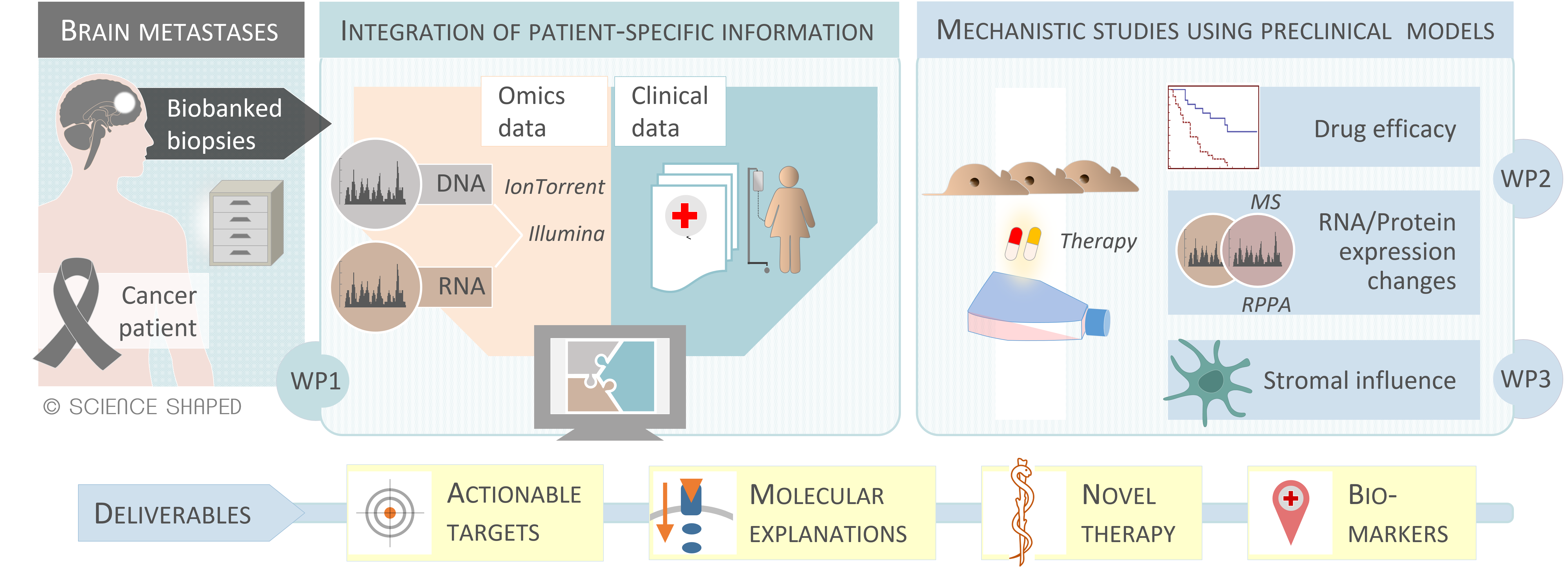Clinical studies in melanoma
Brain metastasis

PI: Vigdis Nygaard
Brain metastasis (BM) remains the leading cause of cancer-related deaths for tumor types such as malignant melanoma despite new therapy options for these patients. We currently have a limited understanding of the effectiveness of these new therapies in BM treatment and how to benefit from precision medicine. Filling our knowledge gap on the molecular profiles and mechanisms underlying BMs may provide advances in the field.
In this research project we utilize a biobank consisting of surgically removed BM samples for genomic analyses. To date the biobank holds >180 clinically annotated samples. These samples are processed for next generation sequencing (NGS) analyses in order to obtain mutational and transcriptional profiles. Our goal is to molecularly characterize BMs and to identify new treatment opportunities and biomarkers which may indicate benefit from precision medicine approaches for BM patients. Candidate targets identified by data exploration can be tested for efficacy in our experimental BM metastasis models, and thereby provide a basis for novel brain-specific therapy approaches.
The rapid advancement of immunotherapy has created an immediate need for increased knowledge of BM immune profiles and how these tumors respond to these therapies. In this project we direct specific focus on characterizing the immune phenotypes of BMs using known immune signatures associated with response to check point blockade.

Biomarkers in melanoma
Breast Cancer Biomarkers

PI: Mads H. Haugen
Breast cancer remains a leading cause of death and suffering in a global perspective, despite the impressive advances in treatment options. Additionally, the rate of new drugs actually being approved and used in the clinic is disturbingly low. There is thus a need to focus on optimization of both novel and available treatments, so these can be of benefit to cancer patients. In our ongoing projects of identifying biomarkers we focus on development of novel procedures and strategies to classify which breast cancer patients respond to selected treatments. Molecular precision medicine in breast cancer
